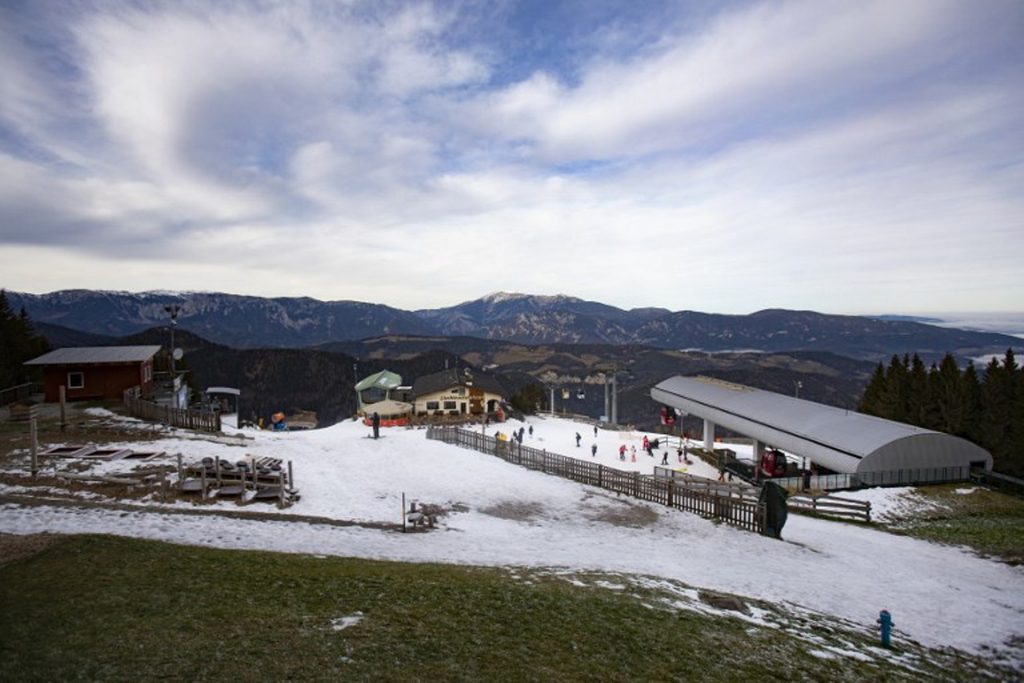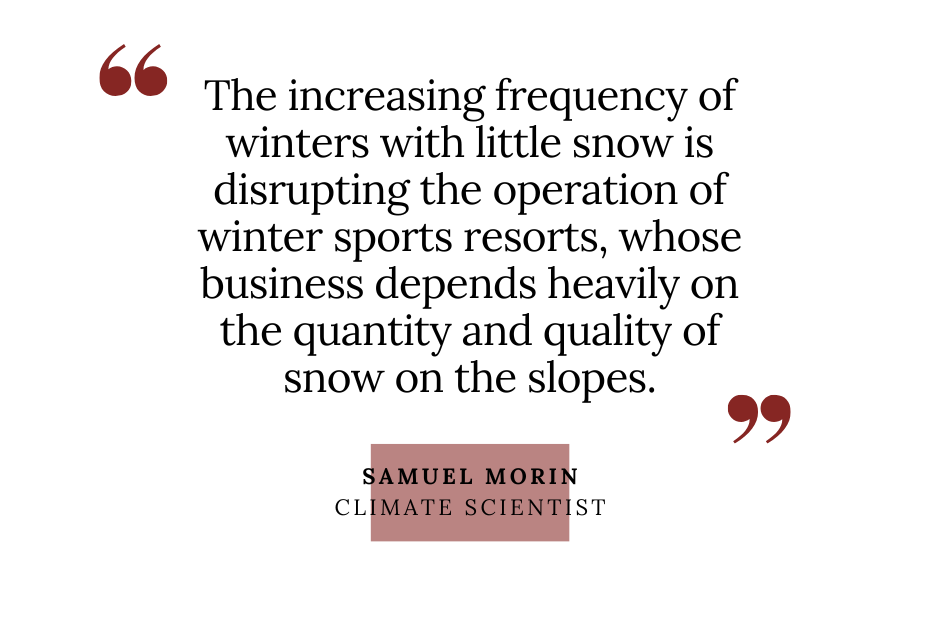Climate change could spell the end of many popular European ski resorts, as warming temperatures will increasingly leave mountainous regions without adequate annual snowfalls.
Between the months of December and April, many people flock to the mountains to go skiing in Europe's many popular resorts, from Chamonix in France to the less well-known Slovenian city of Maribor, destinations that rely heavily on snow coverage on their pistes to attract tourists.
However, similarly to predictions made in a recent study about southern European summer destinations, climate change could also shift tourism trends in mountainous regions If global warming continues at its current pace, global warming could result in increasingly snow-scarce conditions to the detriment of many ski resorts, scientists calculated in a study published in the journal Nature Climate Change.
"The increasing frequency of winters with little snow is disrupting the operation of winter sports resorts, whose business depends heavily on the quantity and quality of snow on the slopes," climate scientist Samuel Morin told The Brussels Times.
If the earth warms by 2°C, a quarter of the 2,234 analysed ski resorts across 28 European countries between Iceland and Turkey will be without snow on average once every two years.
Sustaining snow coverage.
Morin explained that conditions will deteriorate for all resorts as the climate warms up, but the resorts where snow cover is "already most unfavourable" due to their low altitude and low latitude, "are those for which this deterioration will be the most rapid."
The past winter sports season began in the Alps mostly green and with rainfall instead of snow. These risks for lower-lying ski resorts are not new: the United Nations already warned ski resorts at altitudes of 1,200 metres as early as 2003 of "bad economic times" due to climate change.
For the study, scientists took into account not only natural snowfall but also snow production through the use of snow cannons, without which half of the ski resorts analysed are projected to experience a very high snow supply risk at 2°C, and as many as 98% at 4°C global warming levels.
Artificial snowmaking will continue to compensate for snow shortfalls in some resorts in the Alps, Nordic countries and Turkey, but it is unlikely to help in southern Europe and the United Kingdom, where it will often become too hot to make artificial snow at all, or the snow produced will melt quickly.
While the environmental footprint of snowmaking cannot be understated, the researchers that this accounts for around 2%–4% of the total carbon footprint of the destination. "Indeed, reaching strong reductions in greenhouse gas emissions for ski tourism destinations will chiefly depend on massive reductions of the carbon footprint of transportation and accommodation."
Threatening livelihoods
Researchers stressed that these findings have implications for tourism development strategies. Particularly, as it remains unclear how policies aiming to limit global warming to +2 °C are compatible with carbon-intensive tourism activities in their current form.
"Even if a substantial fraction of European ski resorts are projected to still be able to operate at 2 °C global warming, the ability of ski tourism destinations, as a whole, to achieve their share of greenhouse gas emission reductions required to remain below this global warming level is a major challenge."

Ski piste with very little snow. Credit: Canva
Hosting about 50% of the world’s total ski resorts and over 80% of the world’s ski resorts with more than 1 million skier visits, the European ski industry has a turnover exceeding €30 billion per year.
While ski tourism may seem like a "niche issue" in the face of climate change, its demise can be devastating from the point of view of the people who live in the mountains and make a living from the industry.
"It is therefore important to take these factors into account when planning the adaptation and transformation of mountain areas in the context of climate change and global change more generally," Morin said.
Rising temperatures and extreme heat conditions at lower elevations in southern European countries have made some mountain destinations more appealing, an IPCC report published in February 2022 showed, increasing the potential for these locations as summer destinations, which could make up for losses in the winter.
However, here too, climate-related hazards such as flash floods and landslides, have contributed to an increase in disasters, which could further push tourists away.


